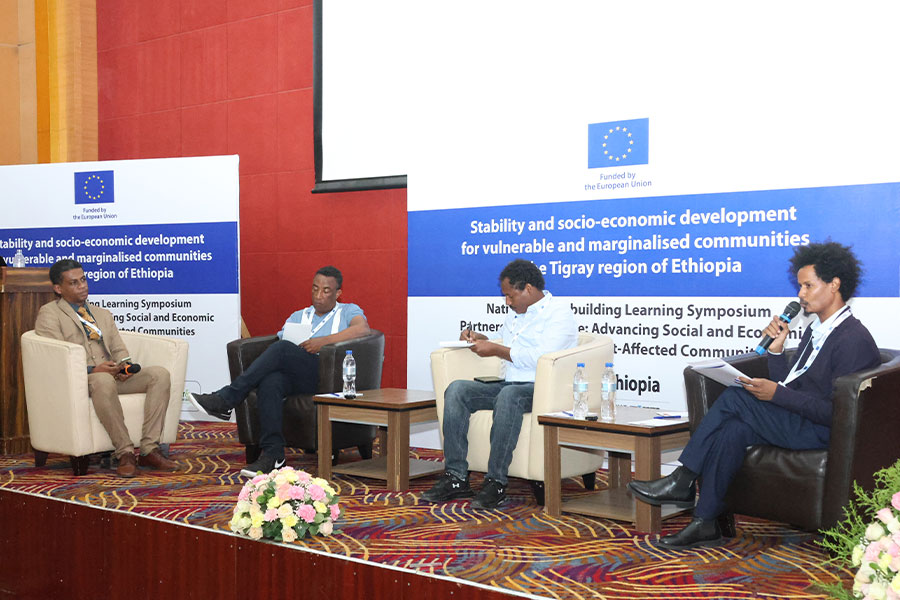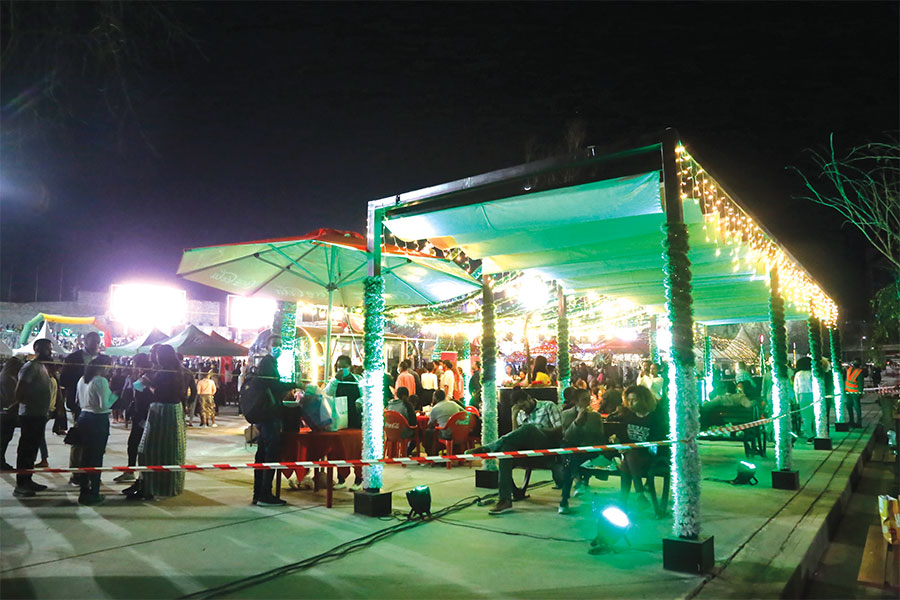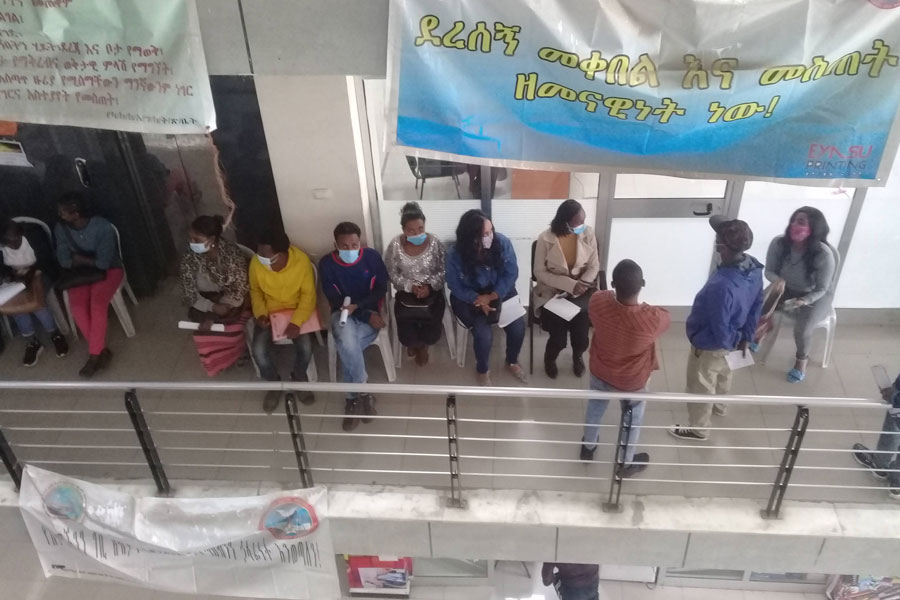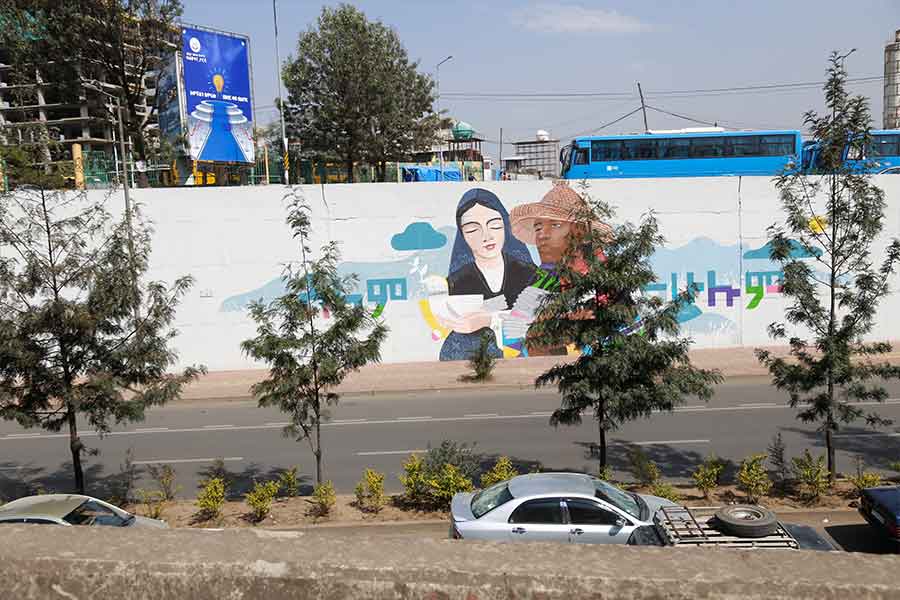
Jul 3 , 2021.
For the curious interested in political studies, the twists and turns unfolding in Ethiopia provide a rarely paralleled case study in history, nationalism, elite consensus (or, mostly in Ethiopia, lack of it), ethnic relations and warfare. For people inside the country, it means a heightened sense of insecurity, poverty, and worst cases, atrocities, displacement, hunger, and sexual assaults.
Ethiopia is a state that has been to the brink and back again, a seemingly unending vacillation, throughout its history. Just this past week, it seems it might have crossed another major milestone in the form of the federal government declaring a ceasefire to the civil war raging in the Tigray Regional State since November last year.
Brief reports from Meqelle, the seat of the regional administration, last week showed residents out in the evening celebrating the withdrawal of federal troops and the entry of the Tigray Defense Forces (TDF). Not long after came a declaration by the federal government of a "unilateral humanitarian ceasefire" to a war that has already cost 2.2 billion dollars (in the current exchange rate), according to federal authorities. It is an amount comprising 2.3pc of the GDP.
The advancing of the TDF into Meqelle, the withdrawal of federal forces from Tigray, and the retreat of Eritrean forces were major events last week. The subsequent declaration of unilateral ceasefire is a game-changer in the frowned international relations Ethiopian authorities have developed lately. As a matter of demand, there is little the international community could press Addis Abeba any further than it would those in Meqelle.
With the civil war in Tigray proven to be protracted, those in the federal governemnt seem to have the desire to avoid a quagmire, hence declaring the ceasefire unilaterally.
The word “unilateral” is key here. In the absence of cessation of hostilities, it means that the war has not ended. Since communications with the region have once again been disconnected - which is rarely a good sign - the exact circumstance of matters remains unclear. But the TDF has not agreed to a ceasefire. Neither have Eritrean forces entirely left the region or that the Amhara Regional State would agree to return to the status quo ante in the territories it has occupied shortly after the start of the war.
There is also not much to be relieved about as the TDF has hinted that it would continue to engage the remaining Eritrean and Amhara militia forces. The federal government itself has insisted that despite pulling out its troops from the region, or parts of it, it will respond in kind “if unduly provoked by attacks that compromise the spirits of the ceasefire.”
There is nothing certain about what may happen going forward. Even if TDF accepts the ceasefire, it has all the makings of political entanglement, with many more unanswered questions.
Will the unilateral ceasefire gets complimented with cessation of hostilities from both sides? Will there be unfettered access to deliver humanitarian assistance to the needy? Will there be a mutual temperament to ensure basic services is delivered to the civilian population? Can there be a way to keep all sides apart from resuming active militarised conflict?
None of these could be sorted out overnight. But they are essentially political issues that could be settled through negotiations, under domestic and international mediations, if there is indeed the will by the political elite to bring peace to citizens who continue to suffer.
The political "will" could be found in Ethiopia – one only needs to look around at the consequences of the war.
There is a silver lining to have lived through such a time, and it is the searing reminder that armed conflict is ugly, needless, and leaves both sides weak and bloodied. There is no better example of this gruesomeness than the Tigray war, which has left millions displaced, perhaps as much as tens of thousands dead, created famine conditions, led to economic sanctions and the devastation of infrastructure and developmental gains that have taken decades to realise.
The direct outcome of the war is a sad state of close to 5.2 million people in need of life-saving assistance, according to the World Food Programme (WFP). No less than two million of these are internally displaced, while the USAID estimated 900,000 face the grim prospect of famine. When displacement and famine are combined, it is a dangerous mix that will lead to catastrophe. Beyond the rage manifested by several factors in this regrettable conflict, it should be in the interest of all sides to avoid the worst - the death of thousands by hunger.
The UN estimates 1.7 billion dollars is needed to pay for emergency relief operations in Tigray. It is only 40pc of this amount available from donors to date, of which the United States covers three-forth.
All of the inspiration to end the war could be found in how fruitless and needless it has proven to be thus far. Even if peace reigns over Tigray, it may take decades to bring it to its pre-war levels of development.
It will be incumbent upon the elite to unravel the current quagmire – a muddle they have led their people into; and, out of which they could lead them. But this could only start by stepping up the ceasefire to the cessation of hostilities to be accepted by all parties in the conflict. This can be a prelude to a political process for negotiation, compromise and settlement. There will be questions on how groups – on the warring sides as the Amhara militia, TDF and Eritrean government – can ever find it in themselves to tolerate the existence of one another that they are no longer fighting.
It can start with persuading each party to deescalate the rhetoric against one another. Words are weapons, oftentimes leading to deadly conflicts. As the debacle over the past year revealed, violent conflicts begin with a war of words. Success can be leveraged to push for an enduring political process where parties in the conflict enter into negotiations in good faith with unambiguous parameters. That violence is not a way forward to advance political goals; the constitutional order should be upheld; the sovereignty of the Ethiopian state and unity of the country preserved.
Perhaps a lesson could be taken from the diplomatically and politically elaborate settlement between China and Taiwan, allowing each other to peaceful coexistence. It may not be the perfect analogy, and neither is the political settlement between the two as ideal as it was hoped. But it offers an example of how the will for peace can allow sides that disagree on the fundamental question of one another’s right to exist could find rapprochement for long enough that they lift their people out of poverty and become a hub of industry and technological advancement.
The governments of both have claimed to be the legitimate government of China until the United States finally secured a détente with the communist government in the mainland. At the same time, the US continued to back Taiwan militarily. In response to an agreement from communist China not to take Taiwan forcefully, the latter has implicitly agreed not to declare independence and stay only in de facto self-governance.
This seems like a highly shaky political settlement to build on, but it was also the best system they could find to ascertain peace and stability. Relationships have always been undoubtedly tense, but the two have yet to exchange military fire. It is important to note that between them, they have a combined trade of 149 billion dollars.
When there are disagreements that could lead to war, it is better to leave them for wiser leaders and generations to address and pursue common causes for economic development in the meanwhile, Deng Xiaoping, the successor to Mao Zedong, once captured the logic behind such détente about the many territorial disputes China has with its neighbours.
This is one among many unorthodox models applied worldwide, where the overriding motive in securing peace. Its absence makes any future political settlement impossible. If the elites do stand for the interests of their people as they claim to, they will cease to fight and fight to bring peace and development to their people.
PUBLISHED ON
Jul 03,2021 [ VOL
22 , NO
1105]

My Opinion | Mar 27,2021

In-Picture | Oct 18,2025

Fortune News | Jan 07,2022

Editorial | Jul 02,2022

Agenda | Jul 03,2021

Commentaries | Apr 22,2022

Commentaries | Apr 10,2023

Commentaries | Dec 23,2023

Fortune News | Jan 19,2024

Radar | May 29,2021

Photo Gallery | 179079 Views | May 06,2019

Photo Gallery | 169277 Views | Apr 26,2019

Photo Gallery | 160155 Views | Oct 06,2021

My Opinion | 137147 Views | Aug 14,2021

Dec 22 , 2024 . By TIZITA SHEWAFERAW
Charged with transforming colossal state-owned enterprises into modern and competitiv...

Aug 18 , 2024 . By AKSAH ITALO
Although predictable Yonas Zerihun's job in the ride-hailing service is not immune to...

Jul 28 , 2024 . By TIZITA SHEWAFERAW
Unhabitual, perhaps too many, Samuel Gebreyohannes, 38, used to occasionally enjoy a couple of beers at breakfast. However, he recently swit...

Jul 13 , 2024 . By AKSAH ITALO
Investors who rely on tractors, trucks, and field vehicles for commuting, transporting commodities, and f...

Oct 25 , 2025 . By YITBAREK GETACHEW
Officials of the Addis Abeba's Education Bureau have embarked on an ambitious experim...

Oct 26 , 2025 . By YITBAREK GETACHEW
The federal government is making a landmark shift in its investment incentive regime...

Oct 29 , 2025 . By NAHOM AYELE
The National Bank of Ethiopia (NBE) is preparing to issue a directive that will funda...

Oct 26 , 2025 . By SURAFEL MULUGETA
A community of booksellers shadowing the Ethiopian National Theatre has been jolted b...